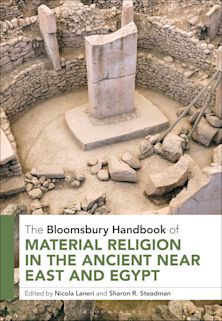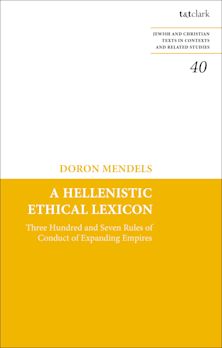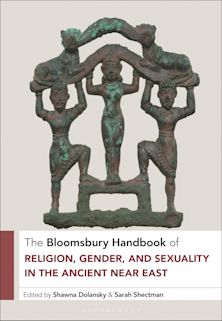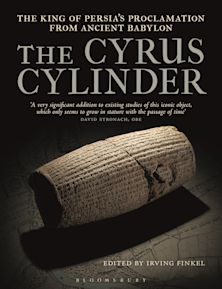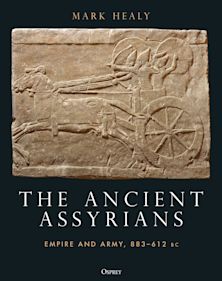Description
A comprehensive A–Z resource chronicling over 4,000 years of scientific thought in the ancient Mediterranean and Near East, this book offers a complete overview of the physical, chemical, life, medical, and social sciences of the classical world.
While many know of steam power and the idea that the planets orbit the Sun, few realize the ancient Greeks understood these concepts over 2,000 years ago. Now, Science in the Ancient World fills this gap by covering all the major scientific developments during 4,000 years of ancient history.
With over 150 entries, this work explores the origins of science, from astronomy and mathematics to medicine and chemistry. Giants like Aristotle and Plato are examined, together with more obscure figures like Nearchus, explorer of the Indian Ocean, and Hero, discoverer of steam power. Emphasis is placed on the diversity of ancient science, from the achievements of the Mesopotamians to the science of the Romans. The philosophies behind ancient science are explored, from the Epicurean pursuit of happiness to the asceticism of the Stoics. This comprehensive survey brings to the modern reader a long lost age of scientific discovery.
Table of Contents
A
Academy
Aelian, Claudius (floruit early third century CE)
Agathemerus (floruit first century CE)
Agriculture
Alcmaeon (floruit early sixth century BCE)
Alexander of Macedon (356–323 BCE)
Alexandria
Ammianus Marcellinus (325–395 CE)
Anaxagoras of Clazomenae (500–428 BCE)
Anaximander of Miletus (610–540 BCE)
Anaximenes of Miletus (585–525 BCE)
Apollonius of Perga (floruit 235 BCE)
Archelaus of Athens (floruit fifth century BCE)
Archimedes (287–212 BCE)
Aristarchus of Samos (310–230 BCE)
Aristotle (384–322 BCE)
Arrian (89–180 CE)
Asclepiades (floruit first century BCE)
Asclepius/Asclepiads
Asia, East and South
Astronomy
Athenaeus (floruit early third century CE)
Athens
Atoms
Aurelius, Marcus (121–180 CE)
Aurelius Augustine (354–430 CE)
B
Babylon
Bronze Age (3500–800 BCE)
C
Caesar, Julius (100–44 BCE)
Calendars and Dating Systems
Cato, Marcus Porcius (Elder) (234–149 BCE)
Celsus (floruit 25 CE)
Cicero (106–43 BCE)
Columella (5 BCE–60 CE)
Commentators
Constantinople
Constellations
D
Democritus (460–370 BCE)
Diogenes Laertius (floruit third century CE)
Diogenes of Apollonia (floruit late fifth century BCE)
Dreams
E
Easter
Egypt
Eleatic School
Elements
Empedocles (495–435 BCE)
Engineering and Technology
Epictetus (55–135 CE)
Epicureanism
Epicurus (341–271 BCE)
Erasistratus (275–194 BCE)
Eratosthenes (276–195 BCE)
Euclid (floruit 300 BCE)
Eudoxus of Cnidus (408–352 BCE)
Eunapius (floruit fifth century CE)
F
Frontinus, Sextus Julius (floruit late first century and early second century CE)
G
Galen (130–200 CE)
Gaza
Geminus (floruit first century CE)
Geography/Geodesy
Greek Archaic Age (800–500 BCE)
Greek Classical Age (500–323 BCE)
Greek Hellenistic Age (323–31 BCE)
H
Hecataeus of Miletus (floruit 500 BCE)
Hellanicus of Lesbos (floruit fifth century BCE)
Hellenism
Heraclides of Pontus (floruit fourth century BCE)
Heraclitus of Ephesus (540–480 BCE)
Hero (62–152 CE)
Herodotus of Halicarnassus (490–430 BCE)
Herophilus of Chalcedon (floruit third century BCE)
Hesiod (floruit late eighth century BCE)
Hipparchus (190–120 BCE)
Hippo of Croton (floruit late fifth century BCE)
Hippocrates (460–377 BCE)
History
Homer (floruit eighth century BCE)
Hydraulics
Hypatia of Alexandria (370–415 CE)
I
Iamblichus (250–325 CE)
Ionians
Iron Age
Irrigation Techniques
J
Julian (331–363 CE)
L
Later Roman Empire (180–565 CE)
Leucippus (floruit fifth century BCE)
Life Sciences
Logos
Lucretius (floruit first century BCE)
Lyceum
M
Magi
Magic
Magna Graecia
Marine Science
Mathematics
Maximus of Ephesus (floruit fourth century CE)
Medicine
Mesopotamia (3500–550 BCE)
Meteorology
Miletus
Military Science
Mountains
Myth
N
Nearchus of Crete (ca. 360–312 BCE)
Neoplatonism
New Testament
O
Old Testament (Hebrew Bible)
Oribasius (floruit fourth century CE)
P
Paganism
Palladius (floruit midfourth century BCE)
Peripatetic School
Philo of Byzantium (260–180 BCE)
Philolaus (floruit fifth century BCE)
Philosophy
Philostratus (170–250 CE)
Phoenicians
Physical Sciences
Plato (427–347 BCE)
Pliny the Elder (23–79 CE)
Pliny the Younger (61–113 CE)
Plotinus (205–270 CE)
Plutarch (46–120 CE)
Polybius (208–126 BCE)
Porphyry (234–305 CE)
Posidonius of Rhodes (135–50 BCE)
Prometheus
Psychology
Ptolemaeus, Claudius (100–170 CE)
Pythagoras (570–490 BCE)
Pytheas of Massilia (floruit late fourth century BCE)
R
Roman Principate (31 BCE–180 CE)
Roman Roads and Bridges
Rome
S
Seneca, Lucius Annaeus (5–65 CE)
Seven Sages
Seven Wonders of the Ancient World
Social Sciences
Socrates (470–399 BCE)
Solon (640–560 BCE)
Stoicism
Strabo (63 BCE–21 CE)
T
Tacitus (56–117 CE)
Thales (625–545 BCE)
Themistius (317–388 CE)
Theophrastus (370–286 BCE)
Thucydides (460–400 BCE)
Time
V
Varro (116–27 BCE)
Vesuvius
Vitruvius (floruit 25 BCE)
W
Women and Science
X
Xenophanes of Colophon (570–478 BCE)
Xenophon (430–355 BCE)
Chronology
Bibliography
Index
About the Author
Product details
| Published | Dec 15 2004 |
|---|---|
| Format | Ebook (PDF) |
| Edition | 1st |
| Extent | 320 |
| ISBN | 9781851095391 |
| Imprint | ABC-CLIO |
| Illustrations | 50 bw illus |
| Series | History of Science |
| Publisher | Bloomsbury Publishing |
Reviews

ONLINE RESOURCES
Bloomsbury Collections
This book is available on Bloomsbury Collections where your library has access.












